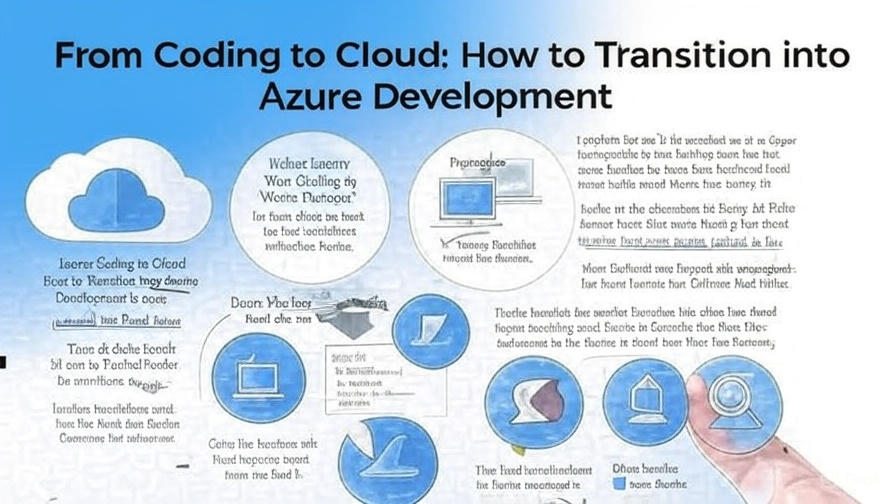Transitioning into Azure development can be a game-changer for your career. Whether you’re a seasoned coder or just starting, moving to cloud development opens up a world of opportunities. This guide will walk you through the essential steps to make a smooth transition into Azure development, from understanding the basics to mastering advanced concepts.
If you’re aiming to become an azure developer associate, this article is your roadmap. We’ll cover everything you need to know, including the skills required, learning resources, and practical tips to help you succeed in this exciting field.
Understanding the Basics of Azure Development
What is Azure Development?
Azure development involves creating, deploying, and managing applications on Microsoft’s Azure cloud platform. It’s a comprehensive suite of cloud services that developers can use to build, test, deploy, and manage applications through Microsoft-managed data centers.
Why Transition into Azure Development?
The demand for cloud developers is skyrocketing. Companies are increasingly moving their operations to the cloud, and Azure is one of the leading platforms. By transitioning into Azure development, you can future-proof your career and tap into a growing market with lucrative opportunities.
Key Skills for Azure Development
To excel in Azure development, you need a mix of coding skills and cloud-specific knowledge. Proficiency in programming languages like C#, Python, or Java is essential. Additionally, understanding Azure services, such as Azure Functions, Azure Storage, and Azure SQL Database, is crucial.
Steps to Transition into Azure Development
Step 1: Learn the Fundamentals of Cloud Computing
Before diving into Azure, it’s essential to understand the basics of cloud computing. Familiarize yourself with concepts like Infrastructure as a Service (IaaS), Platform as a Service (PaaS), and Software as a Service (SaaS). These foundational concepts will help you grasp Azure’s offerings better.
Step 2: Get Acquainted with Azure Services
Azure offers a vast array of services. Start by exploring the core services like Azure Virtual Machines, Azure App Services, and Azure Blob Storage. Microsoft’s official documentation and online courses are excellent resources for learning about these services.
Step 3: Gain Hands-On Experience
Theory is essential, but practical experience is invaluable. Create an Azure account and start experimenting with different services. Build small projects, deploy applications, and troubleshoot issues. Hands-on experience will solidify your understanding and boost your confidence.
Step 4: Pursue Azure Certifications
Certifications can significantly enhance your credibility as an Azure developer. Consider pursuing certifications like Microsoft Certified: Azure Developer Associate. These certifications validate your skills and make you more attractive to potential employers.
Step 5: Join the Azure Community
Engaging with the Azure community can provide valuable insights and support. Join online forums, attend webinars, and participate in local meetups. Networking with other professionals can open up new opportunities and help you stay updated with the latest trends.
Advanced Tips for Azure Development
Mastering Azure DevOps
Azure DevOps is a powerful tool for managing the entire application lifecycle. From planning and development to delivery and operations, Azure DevOps streamlines the process. Learning how to use Azure DevOps effectively can make you a more efficient and productive developer.
Exploring Azure Data Factory
Data is at the heart of modern applications. Azure Data Factory is a cloud-based data integration service that allows you to create data-driven workflows. Understanding how to use Azure Data Factory can give you an edge in developing robust and scalable applications. For more insights, check out these azure data factory interview questions.
Leveraging Azure AI and Machine Learning
Azure offers powerful AI and machine learning services that can enhance your applications. From cognitive services to machine learning models, Azure provides the tools you need to build intelligent applications. Exploring these services can open up new possibilities for your projects.
Overcoming Challenges in Azure Development
Common Pitfalls and How to Avoid Them
Transitioning into Azure development can be challenging. Common pitfalls include underestimating the learning curve, neglecting security best practices, and failing to optimize costs. Being aware of these challenges and proactively addressing them can set you up for success.
Staying Updated with Azure’s Evolving Landscape
Azure is continuously evolving, with new services and features being added regularly. Staying updated with these changes is crucial. Follow Microsoft’s official blogs, attend conferences, and participate in training programs to keep your skills current.
Building a Strong Portfolio
A strong portfolio showcasing your Azure projects can make a significant impact on potential employers. Include a variety of projects that demonstrate your skills in different areas of Azure development. A well-curated portfolio can set you apart from other candidates.
Conclusion
Transitioning into Azure development is a rewarding journey that can elevate your career to new heights. By understanding the basics, gaining hands-on experience, pursuing certifications, and engaging with the community, you can successfully make the switch. Remember, the key to success in Azure development is continuous learning and adaptation. Embrace the challenges, stay curious, and keep exploring the vast possibilities that Azure offers. Your journey into Azure development starts now, and the sky’s the limit.
What are the prerequisites for learning Azure development?
Before diving into Azure development, having a basic understanding of programming languages like C#, Python, or Java is beneficial. Familiarity with cloud computing concepts and some experience with software development practices will also be helpful.
How long does it take to transition into Azure development?
The time it takes to transition into Azure development varies depending on your background and learning pace. Typically, it can take a few months to a year to gain proficiency, especially if you’re starting from scratch.
Are there any free resources available for learning Azure development?
Yes, Microsoft offers a range of free resources, including documentation, tutorials, and hands-on labs. Additionally, there are numerous online courses and community forums where you can learn and ask questions.
What are the job prospects for Azure developers?
The job prospects for Azure developers are excellent. With the increasing adoption of cloud technologies, there is a high demand for skilled Azure developers across various industries.
How can I gain practical experience in Azure development?
Creating an Azure account and experimenting with different services is a great way to gain practical experience. Building small projects, contributing to open-source projects, and participating in hackathons can also provide valuable hands-on experience.
What certifications are recommended for Azure developers?
Microsoft Certified: Azure Developer Associate is a highly recommended certification for aspiring Azure developers. Other certifications, such as Microsoft Certified: Azure Solutions Architect Expert, can also enhance your credentials.
How can I stay updated with the latest developments in Azure?
Following Microsoft’s official blogs, attending conferences, and participating in training programs are excellent ways to stay updated. Engaging with the Azure community through forums and social media can also provide valuable insights.
What are some common challenges faced by Azure developers?
Common challenges include underestimating the learning curve, neglecting security best practices, and failing to optimize costs. Being aware of these challenges and proactively addressing them can set you up for success.
How can I build a strong portfolio for Azure development?
Include a variety of projects in your portfolio that demonstrate your skills in different areas of Azure development. Showcase your ability to solve real-world problems and highlight any certifications or training you’ve completed.
What are the benefits of joining the Azure community?
Joining the Azure community can provide valuable insights, support, and networking opportunities. Engaging with other professionals can open up new opportunities and help you stay updated with the latest trends in Azure development.


